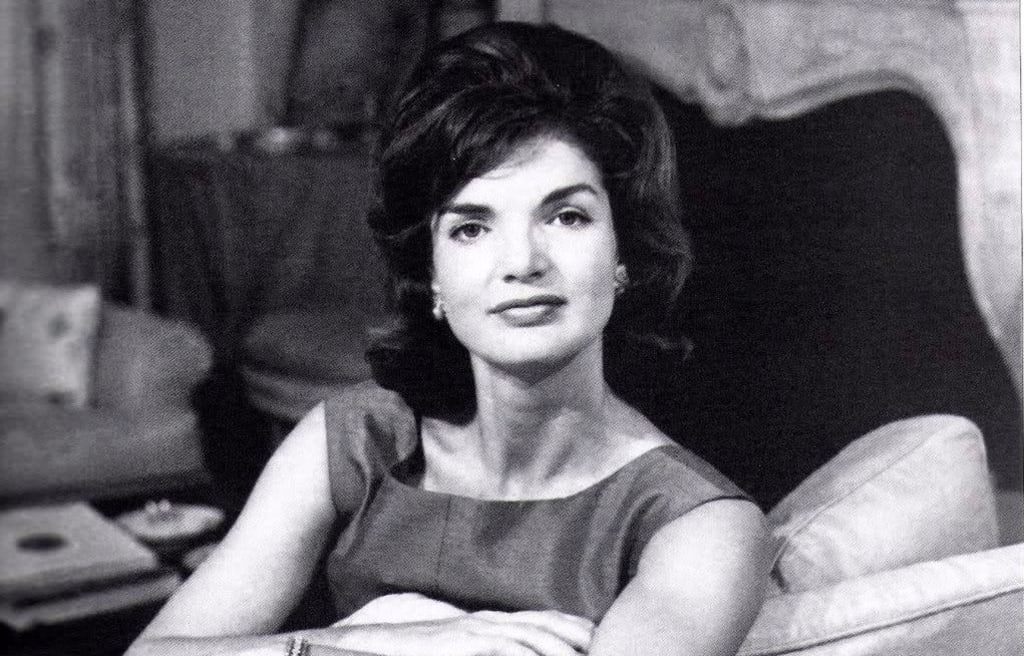The Unfeminist Feminist, Or Is Jackie Kennedy a Feminist Icon?
Jackie Kennedy changed the game for women in America—but she was certainly no feminist.

There is no doubt that the word "icon" applies to Jacqueline Kennedy Onassis. She's without question one of the most famous women in history, and remembered for many things, including her bouffant hair, stylish wardrobe, breathy voice, and the legendary bloodstained pink suit.
She was not just known for her looks, either. In fact, Jackie was respected in political circles for her intelligence, and her fluency in French and Spanish was considered an asset for her husband's political career. Later on in her life, she had a successful career as a book editor, working an office job for a publishing company. She didn't need the money—she worked because she wanted to. And of course, she lived through an extremely traumatic event (the brutal murder of her husband in front of her, for those who have never taken American history) and dealt with the aftermath under intense public scrutiny. In the darkest time of her life, she became an icon of strength and stoicism for a grieving nation, cementing her place as one of the most revered figures of the 20th century.
But in her oral history tapes, in which she recounts her life during her marriage to John F. Kennedy, she makes some remarks that the 21st century listener is bound to find cringeworthy. She believes that women should never go into politics because they are "too emotional," that as a wife she's "terribly Victorian or Asiatic" (meaning subordinate), and that Indira Gandhi is "bitter" and "pushy." She explains that she does not have political opinions of her own, and merely adopts her husband's, because "his were going to be best." The eight hours of tape do not present her as a model of feminism, and unfortunately, they're basically the last real record of Jackie's opinions, who became obsessively private after her White House years.
The "product of its time" argument is perhaps tired and simplistic, but it's the one Caroline Kennedy, Jackie's (politically active) daughter, puts forward. She has good evidence, citing that her mother once told her that European was more interesting than American history because it featured more women. Caroline also points out that her mother avidly supported political female candidates. "I think she was a very big booster of women and the role of women in history and public life, and she obviously became one of the women in American history," Caroline stated, insisting that Jackie herself would cringe if she heard her words played back to her.
So is Jackie a feminist? Hard to say. Certainly, she had an impact on the status of women in America. In the early days of the Kennedy presidential campaign, Jackie was kept mostly out of the spotlight. She was thought to be a hindrance to her husband's image, as she didn't fit the mould of a domestic, homebody presidential wife. But she believed it was precisely this that endeared her to the American public, citing the fact that she spoke French and "didn't bake bread with flour up to [her] arms" as reasons for her popularity.
Her public display of strength is perhaps the most enduring part of her legacy. Recently, many have suggested that Jackie likely suffered from Post-Traumatic Stress Syndrome. It seems she never truly recovered from the tragedy of JFK’s assassination; she relived the events over and over again, and even after her subsequent remarriage she continued to feel paranoid that she and her children would be hurt. But in the later part of her life, she expressed a satisfaction with how far she had come, stating that it was a relief to feel “sane.” This journey from a traumatized, grieving widow to a happy working woman was seen by the world, and maybe inspired a generation of women to find their own strength.
Her unfortunate remarks about women reveal one side of Jackie's feminist mentality, but her actions seem to reveal another. I'll save you the cliché about actions and words.
About the Creator
Em DiMonaco
Writing about whatever I want.






Comments
There are no comments for this story
Be the first to respond and start the conversation.